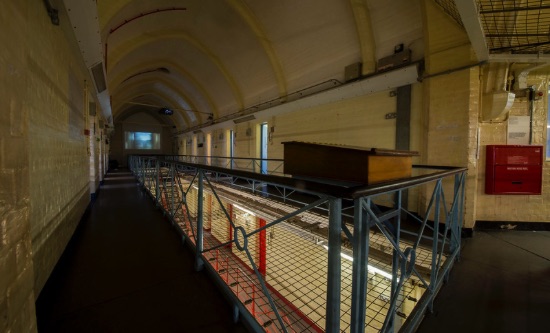
A consultation document issued on 3 March by HM Inspectorate of Prisons (HMIP) has declared that in future, following its inspection of prisons the Inspectorate will no longer make definitive recommendations regarding the improvement of prison regimes and conditions or the treatment of prisoners, but will simply raise ‘concerns’.In reality this means that HMIP has now absolved itself of its statutory duty and responsibility to provide accountability or any semblance of oversight regarding the prison system.Former long-term prisoner JOHN BOWDEN reports.
For many years HMIP has complained that its recommendations regarding the conditions and treatment of prisoners have been routinely ignored by governors and the prison authorities. In 2016 then Justice Minister Michael Gove announced that HMIP recommendations would become legally binding on the prison system with sanctions for not implementing them. However, nothing actually happened to bring this about, and the truth is that the role and purpose of HMIP in holding accountable the prison system for its treatment of prisoners was always a total myth and it has existed only to provide a thin veneer of accountability over a system that is answerable to no-one in its treatment of prisoners.
This is especially evident in the way the HMIP has maintained a conspicuous silence in relation to the barbaric treatment of prisoners held within Close Supervision Centres (CSC), where psychological torture is an integral part of the solitary confinement regime that characterises such control units. During the most recent HMIP inspection of Woodhill prison in September 2021 inspectors carefully avoided the CSC unit, and the last time HMIP carried out any visit to the CSC system was in 2017, when it found that ‘Care and management planning had been improved… Units were psychologically informed, and… The focus on giving men hope and persevering even with those who were the most difficult to reach was impressive.’
A year after HMIP gave Woodhill CSC its blessing, three prisoners in the unit brutally murdered a fourth. In October 2021 the verdict of the inquest into his death painted a very different picture to that seen through HMIP’s rose-tinted lenses, describing a place of extreme danger and neglect.
As with the Prison and Probation Ombudsman, HMIP is nothing more than a state-created body intended to camouflage the true reality of the prison system, which of course is a state weapon of repression totally devoid of respect for the basic human rights of its captives.
The truth is that prison guards are directly responsible for transmitting penal culture and reality to the imprisoned, and it is the balance of power between guards and prisoners that ultimately determines how prisoners are treated and the nature of prison regimes. This was certainly proven in the 1970s and 1980s when prisoners in the maximum security prison system organised revolts and uprisings that radically shifted the balance of institutional power in their favour and created a real frontline of struggle that was politically recognised by radical groups on the outside like the Revolutionary Communist Group as an important part of the wider class struggle. The Strangeways prison uprising in 1990 sent a positive shockwave through the entire British prison system and collectively empowered prisoners, proving that only the struggle of prisoners themselves could force the system to mitigate its brutal and dehumanising treatment of them.
Unfortunately, during the subsequent three decades prisoner solidarity has diminished considerably, hastened by a US-style prison gang culture, and an increasing ‘law and order’ political climate that has had a considerable impact on prison regimes and methods of control. As the balance of power shifted back to the advantage of prison guards and the system they impose, conditions within prisons inevitably worsened. No longer confronted by organised prisoner resistance that system has not the slightest inclination to recognise or respect the basic human rights of the imprisoned, regardless of the ‘recommendations’ of impotent bodies like HM Inspectorate of Prisons.
Fight Racism! Fight Imperialism! No 287, April/May 2022




